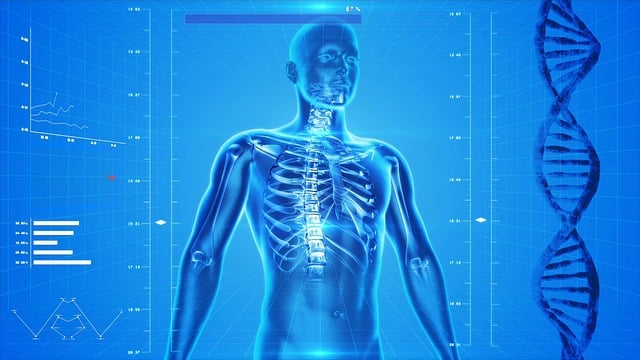Understanding the Human Nervous System
The human nervous system is a complex and intricate network that regulates and coordinates body activities. It is responsible for everything from basic survival functions to advanced cognitive processes. In this blog post, we will explore the components, functions, and importance of the nervous system in detail.
-
Overview of the Human Nervous System
The human nervous system is divided into two main parts: the central nervous system (CNS) and the peripheral nervous system (PNS). Together, these systems control voluntary and involuntary actions and facilitate communication between different parts of the body.
1.1. Central Nervous System (CNS)
The CNS consists of the brain and the spinal cord. It is the control center for the body, processing information and making decisions.
- Brain:The brain is the most complex organ, responsible for thought, memory, emotion, touch, motor skills, vision, breathing, temperature regulation, and many more bodily functions.
- Spinal Cord:The spinal cord is a long, thin, tubular structure that connects the brain to the peripheral nervous system. It transmits neural signals between the brain and the rest of the body.
1.2. Peripheral Nervous System (PNS)
The PNS is comprised of all the nerves that branch out from the brain and spinal cord and extend to other parts of the body including muscles and organs.
- Somatic Nervous System:This system controls voluntary movements by transmitting signals from the brain to the muscles.
- Autonomic Nervous System:This system regulates involuntary functions such as heartbeat, digestion, and breathing. It is further divided into the sympathetic and parasympathetic nervous systems.
2. Neurons: The Building Blocks of the Human Nervous System
Neurons are the fundamental units of the brain and nervous system, responsible for receiving sensory input, sending motor commands, and transforming and relaying electrical signals.
2.1. Structure of Neurons
Neurons consist of three main parts:
- Cell Body (Soma): Contains the nucleus and is the metabolic center of the neuron.
- Dendrites: Branch-like structures that receive messages from other neurons and transmit them to the cell body.
- Axon: A long, slender projection that conducts electrical impulses away from the cell body to other neurons, muscles, or glands.
2.2. Types of Neurons
Neurons are classified based on their function:
- Sensory Neurons: Carry signals from sensory organs to the CNS.
- Motor Neurons: Transmit commands from the CNS to muscles and glands.
- Interneurons: Connect neurons within the CNS and are involved in the processing of information.
3. Neurotransmitters and Synapses
Neurons communicate with each other through synapses using chemical messengers called neurotransmitters.
3.1. Synapse Structure
A synapse consists of:
- Presynaptic Terminal: The end of the neuron that releases neurotransmitters.
- Synaptic Cleft: A small gap between the presynaptic terminal and the postsynaptic terminal.
- Postsynaptic Terminal:The part of the neuron that receives neurotransmitters.
3.2. Major Neurotransmitters
Some important neurotransmitters include:
- Acetylcholine:Involved in muscle activation and memory.
- Dopamine:Plays a role in reward, motivation, and motor control.
- Serotonin:Regulates mood, appetite, and sleep.
- GABA (Gamma-Aminobutyric Acid):The primary inhibitory neurotransmitter in the CNS.
4.The Brain: Command Center of the Human Nervous System
The brain is the central organ of the CNS and is responsible for interpreting sensory information and issuing commands.
4.1. Major Brain Regions
The brain is divided into several major regions:
- Cerebrum: The largest part of the brain, responsible for higher brain functions like thought and action.
- Cerebellum: Coordinates voluntary movements and maintains balance and posture.
- Brainstem:Controls basic life functions such as breathing, heartbeat, and blood pressure.
4.2. Functional Areas of the Brain
- Frontal Lobe: Involved in decision-making, problem-solving, and planning.
- Parietal Lobe: Processes sensory information such as touch, temperature, and pain.
- Occipital Lobe: Responsible for vision.
- Temporal Lobe: Involved in processing auditory information and memory.
5.The Spinal Cord: Highway of Nerve Signals
The spinal cord serves as a conduit for signals between the brain and the rest of the body.
5.1. Structure and Function
- Vertebrae: The bony structures that protect the spinal cord.
- Spinal Nerves: Thirty-one pairs of spinal nerves branch off from the spinal cord, each responsible for motor and sensory functions in specific body regions.
5.2. Reflex Actions
Reflexes are automatic responses to stimuli that are mediated by the spinal cord, allowing for quick reactions without involving the brain.
6.The Autonomic Human Nervous System : Balancing Act
The autonomic nervous system controls involuntary physiological functions and maintains homeostasis.
6.1. Sympathetic Nervous System
The sympathetic nervous system prepares the body for ‘fight or flight’ responses during stressful situations.
6.2. Parasympathetic Nervous System
The parasympathetic nervous system promotes ‘rest and digest’ functions, conserving energy and maintaining normal bodily functions during restful states.
7.Common Disorders of the Nervous System
Various disorders can affect the Human Nervous System, impacting its ability to function properly.
7.1. Neurodegenerative Diseases
- Alzheimer’s Disease: Characterized by progressive memory loss and cognitive decline.
- Parkinson’s Disease: Affects motor control, leading to tremors and rigidity.
7.2. Neurological Disorders
- Epilepsy: A condition marked by recurrent seizures due to abnormal electrical activity in the brain.
- Multiple Sclerosis: An autoimmune disorder that damages the myelin sheath, affecting nerve signal transmission.
Conclusion
The Human Nervous System is an essential and highly complex component of the human body, integral to both basic survival functions and advanced cognitive abilities. Understanding its structure and functions provides insight into how we interact with and interpret the world around us, as well as how various disorders can impact our daily lives. Continuous research and advancements in neuroscience hold the promise of better treatments and interventions for neurological disorders, improving the quality of life for many individuals of Human Nervous System.

